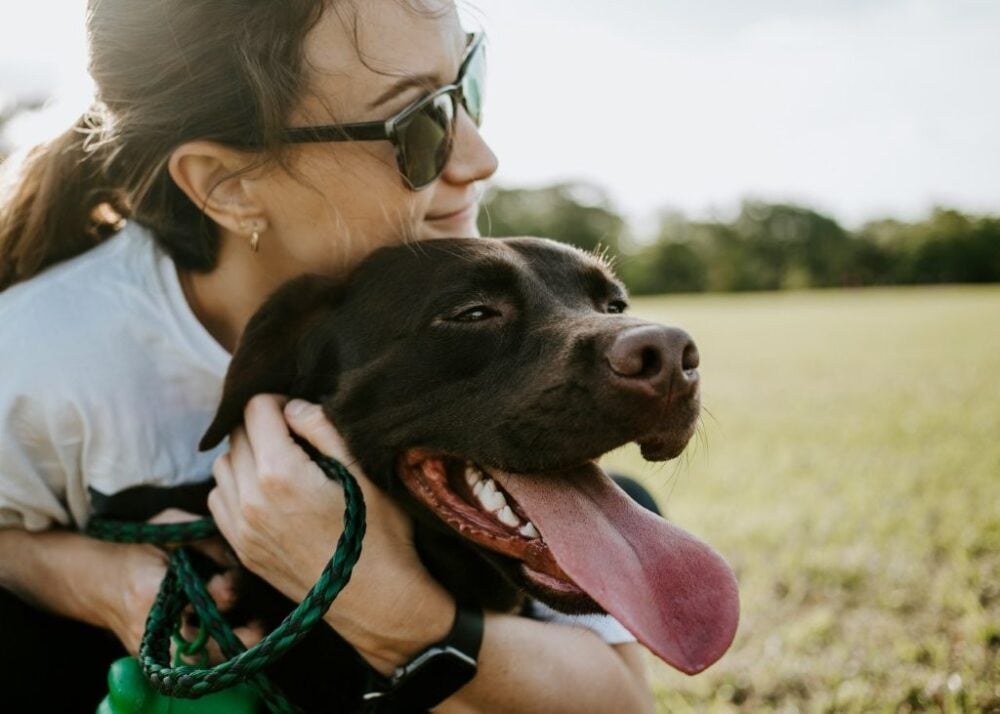“Who Gets the Dog?!” Pets and Family Law

It’s one of the most common and emotionally charged questions family lawyers are asked after a relationship ends: “Who gets the dog?”
You might be surprised to learn that under the Family Law Act 1975 (Cth), pets such as dogs are considered property when a married or de facto couple separates – just like a car or a piece of furniture.
Historically, the Federal Circuit and Family Court of Australia (the Court) had limited power when making orders about pets, but that’s about to change.
In this article, we’ll explore how pets (referred to as ‘companion animals’) are treated under family law, what’s changing, and what you need to know if you’re facing situation.
What kinds of animals are affected?
While we’ll focus on dogs here, the upcoming changes apply to any animal which is considered a ‘companion animal’ under the Family Law Amendment Act 2024 (Cth).
To qualify as a companion animal under the legislation, the pet must have been kept primarily for companionship by one or both parties in the relationship. This does not include:
- Assistance animals as defined under the Disability Discrimination Act 1992;
- Animals kept for business or agricultural purposes; or
- Animals used for laboratory tests or experiments.
The ‘Shared custody’ myth
Many people assume that shared custody of a pet – like a week-on, week-off arrangement – can be legally enforced following the breakdown of a relationship.
The Court can only make Orders that one party maintain the ownership and possession of the pet.
If you’re concerned about keeping your pet over your ex-spouse or ex-partner post-separation, it’s important to get advice from a specialist family lawyer as early as possible.
Historical powers of the Court in relation to pets
Until now, the Court had limited power to make orders in relation to pets. The only order the Court could make was granting ownership of the pet to one party.
What’s changing from 10 June 2025?
From 10 June 2025, the Court will be able to make the following Orders:
- Granting sole ownership and care of the pet to one party;
- Transferring the ownership of the pet to a consenting third party; or
- Ordering that the pet be sold.
In deciding what should happen with a pet post-separation, the Court will be able to consider a broader range of factors. These include:
- How the pet was acquired (who purchased or obtained it and how);
- Who currently owns or possesses the pet;
- Each party’s role in caring for and paying for the pet;
- Any family violence that occurred during the relationship;
- Any history of cruelty or abuse towards the pet, or any threat of same;
- The emotional attachment one party or a child has to the pet;
- Each party’s ability to independently care for the pet in the future; and
- Any other relevant circumstances the Court deems important.
Key factors explained
Let’s break these factors down:
Acquisition
When determining how the companion animal was acquired, we anticipate it will be relevant who purchased the companion animal and how the purchase was funded.
If the companion animal was not purchased, we anticipate it will be relevant if the companion animal was gifted, adopted, or found, and who by.
Ownership and possession
Evidence such as pet registration and microchip details (which identify the legal owner) will likely be relevant.
In relation to possession, the Court will also consider who the pet has been living with since separation, and for what duration.
Care and maintenance
We anticipate the Court will consider who was responsible for the care and maintenance of the companion animal, both during the relationship and post separation.
Family Violence
If one party has relied on the pet for emotional support due to family violence, this may strongly influence the Court’s decision about who maintains ownership of the pet.
Attachment
While emotional attachment to the pet is a factor the Court will consider, we anticipate this will also be the main factor that parties will consider when deciding whether to pursue a legal dispute over the ownership of pet.
Future Care
The person seeking to keep the pet will need to demonstrate they can care for and maintain the pet on their own.
This would be likely be displayed by proving prior care and maintenance and strengthened by having possession of the companion animal at the relevant time.
We anticipate that any history of cruelty or abuse will be considered in conjunction with this point, as that would suggest the party cannot care for the companion animal.
Other relevant matters
The Court will have a broad discretion when assessing the weight that should be given to each factor and any other relevant factor, depending on the circumstances of the matter.
Looking ahead: the unknowns
Because these legislative changes are new and yet to be tested, some assumptions have been made about how the factors will be applied. It will be important for us to monitor how judges interpret and implement these provisions over time.
Need advice?
If you are facing separation and are concerned about keeping your pet, we strongly recommend seeking advice from an experienced family lawyer. The emotional and legal stakes are high, and understanding your rights and obligations early can make all the difference.
Need advice on family law?
Our experienced team of family lawyers is here to help with your matter, whether it involves separation, divorce, parenting arrangements, or property settlements. We understand the complexities and sensitivities involved and are committed to guiding you through every step.
Book an appointment today:
T: (08) 8212 1077
E: tgb@tgb.com.au